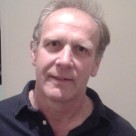Leaders Need To Look To The Stars. 6 Février 2014 by Roger Trapp
posted by admin on juillet 07th, 2020
 In these fast-moving and unpredictable times, it is widely acknowledged that adaptability is among the most important of attributes for a successful leader. With employees increasingly coming from a variety of backgrounds and admitting to a range of motivations, it is also accepted that managers can no longer take a command-and-control approach, but must seek to understand the people they are managing.
In these fast-moving and unpredictable times, it is widely acknowledged that adaptability is among the most important of attributes for a successful leader. With employees increasingly coming from a variety of backgrounds and admitting to a range of motivations, it is also accepted that managers can no longer take a command-and-control approach, but must seek to understand the people they are managing.
Both these themes were duly discussed at this last night’s London conference of the alumni of the Reims Management School and the Rouen BusinessSchool, which have recently merged to create NEOMA Business School. Addressing the topic “Achieving excellence – The role of leadership”, guest speaker Patrick Baudry drew on his lengthy career as a test pilot and astronaut to point to the importance of building relationships with other people and being prepared to change if the circumstances require it.
The willingness to adapt was an obvious factor in his success as a test pilot. He logged more than 14,000 hours on 350 different aircraft, including Mirages, Jaguars and Migs. Nor was he content to stick to his native France. He qualified as a test pilot in England and later joined the Soviet space program through an arrangement whereby France could have an involvement. Selected from a pool of 2,000 candidates, he learned Russian in two months and was set to join a mission. But the death of President Brezhnev in late 1982 led to the program being called off. When the French government entered into a similar agreement with the US Baudry received another chance – and duly joined the Discovery space shuttle mission that took place in June 1985.
As he said, he has learned to adapt to different environments. The challenge is not just to learn different languages, but to understand different cultures and to accept different ways of doing things. For example, he offered a telling illustration of the difference between the Soviet and US space programs. “In the free world, you’ve got different opinions. The big advantage of socialism is that everybody has the same opinion,” he said.
But – in keeping with the importance he attached to the human side of management – he also made clear that there were similarities between all the situations in which he had worked. In all the groups, the members worked to integrate and to bring everything they could to the team. “The understanding between us was perfect, not just because of the training,” he added. As he said in answer to a question about egos in such groups, in a team everybody knows the effectiveness of the team is much more powerful than the sum of the parts.
However, Baudry stressed that the most important quality he associated with leaders was imagination. Imagination and curiosity were what distinguished humans from other species, he said, adding that these qualities led us to take risks and to move forward. Admitting that it was hard to predict the future, he nevertheless regarded the ability to offer a vision of the future as fundamental to leadership.
Bold initiatives such as the space programs were necessary for encouraging people to do great work. They also have many and varied spin-offs – from new technologies to fresh approaches to running projects. It is for this reason that he was disappointed by the abandonment of the European space program that he joined after returning from the United States. On the other hand, his part (as senior test pilot) in the success of Airbus in rising to become a genuine European rival in commercial aircraft to the mighty Boeing has been highly rewarding. “It was the most rich experience of my life,” he said. Quite a claim for a man with a life like his.
Source : http://www.forbes.com/sites/rogertrapp/2014/01/29/leaders-need-to-look-to-the-stars/